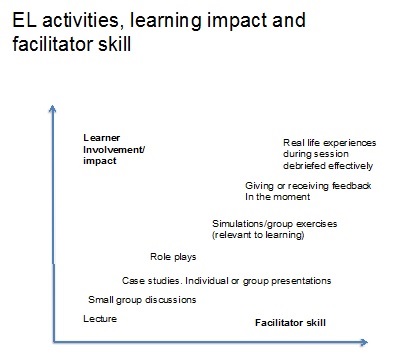Most managers and leaders think they have strong communication skills and that are adept at managing others.
Those reporting to them might think otherwise – even if they don’t openly say so.
Most of us think we are good at communicating. We don’t know what we don’t know and that is not the best place to be and in today’s workplace it’s actually the worst place to be.
Can training help build an awareness of what we don’t know?
Training courses usually focus on team building, leadership, conflict management, problem-solving and the like.mSome also deal with managing stress, giving feedback and creativity and of course much more. And there are some really good programmes out there.
Many of them enable people to try stuff out, interact and develop awareness of strengths and weaknesses. The better ones have well-facilitated exercises bound in sound methodology. The best ones include experiential learning followed by reflection yet these are few and far between.
But most of this training is actually a waste of time.
We can’t retain much of what has been learned and apply it in the workplace unless we continue to build our awareness in the everyday.
The reason why experiential learning has the highest impact on the chances of us doing that is because it allows us to be fully focused and in the moment and we can remember and recall the experience and relate it to our default reactions and responses much more effectively.
What is experiential learning?
Lots of people talk about experiential learning, but what is it? Isn’t all learning an experience? In simple terms, it means learning by doing and then thinking about the experience and having a sense of how to apply that learning. So it’s about assimilating knowledge by trying something out. It’s a very hands-on way of developing knowledge and awareness. It builds confidence, a real understanding and insight of strengths and strategies for working on weaknesses.
How does experiential learning work?
There are some key things that must happen for this to be successful. Learners have to feel good about what they’re doing, feel in control of the process and feel connected to the outcomes. The facilitator has to be very skilled at leading the session and enabling learners to reflect effectively.
Experiential learning requires a very high degree of expertise from the facilitator and learner impact relies heavily on this. The graph below shows different kinds of training methodologies related to learner involvement and facilitator skill.

So how do facilitators get trained in delivering experiential learning? There are loads of ‘train the trainer’ qualifications out there in the L&D world – everything from coaching to being an accredited trainer for a particular specialism.
Soft skills – covering everything from teambuilding to leadership – are a core part of many trainers’ work yet this is still a largely unregulated industry.
Demand for soft skills is soaring globally. Governments in all developing, emerging and mature economies are investing in employability schemes (of which soft skills are always a key component) and individuals invest in this area of personal development, perhaps because they know that it is these skills which will ultimately give them the competitive edge in this crazy climate of economic uncertainty, fierce competition and rapid change.
Everyone wants soft skills but nobody really knows what they are.
Defining ‘soft skills’
When I ask people to define soft skills for me, they usually come out with things like working in a team, leadership, negotiation skills, communication styles, public speaking skills and many more.
Dig deeper and they start to pull out more specific competences such as being resilient, curious, taking risks, being adaptable and creative and many others. These are not skills that are taught consistently or well in most mainstream education systems or in the workplace, yet they are the very skills that will allow us to get ahead, work well and enable organisations and individuals to thrive.
These are the skills that come from self-awareness and self-awareness comes from, among other things, experiential learning. Facilitating experiential learning exercises requires a high degree of skill. Any exercise from a game to improvisation exercises to an outdoor problem-solving can be a vehicle for experiential learning as long as it is related to developing self-awareness in a key area.
Too often though, these activities do not build in sufficient time for reflection so the focus becomes on the activity itself rather than on the learning individuals may get from it.
The importance of self-awareness
For the line manager or leader to be able to really communicate well, to be authentic, direct, skilled at managing others, read a situation well and know how they are contributing to it; for them to be adaptable, resilient, have empathy, integrity, be proactive and optimistic and think critically they need to be self-aware. They need to be able to dig down into themselves to find and nurture these competencies that all of us have. Today’s training needs to be all about building and developing that self-awareness and far less about leadership and teamwork.
Emma Sue Prince is the director of Unimenta, a free membership website for trainers and practitioners who deliver soft skills and personal development. She has recently published The Advantage focusing on soft skills as personal competences and has developed the first Postgraduate Certificate in Delivery of Soft Skills and Experiential Learning.





